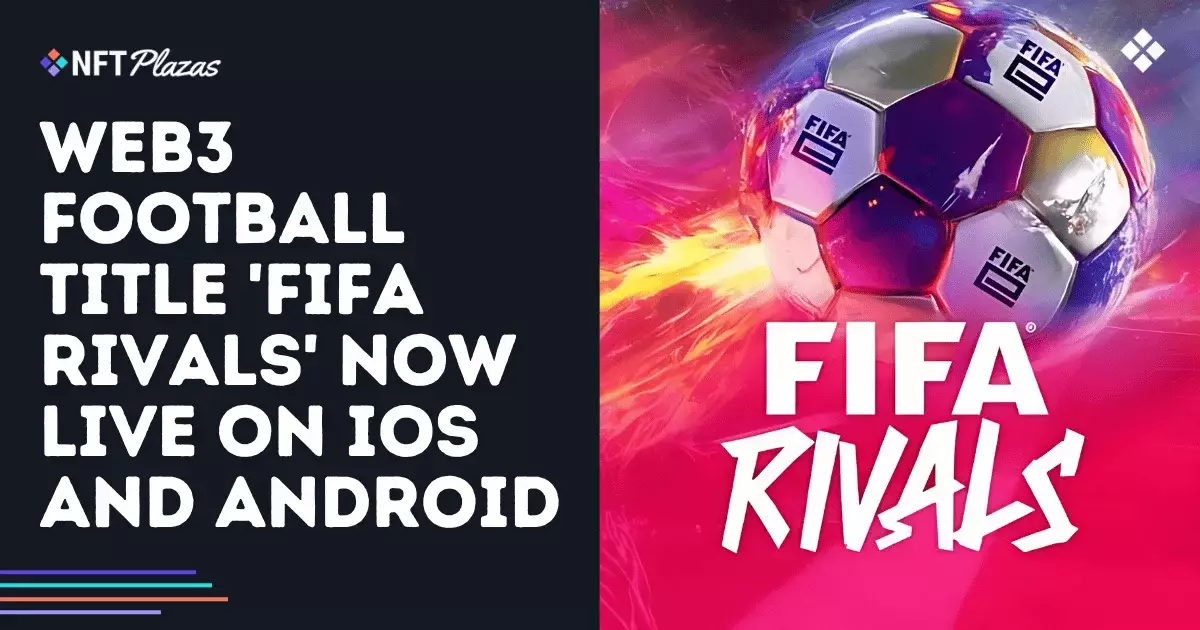FIFA Rivals has officially launched, and it’s already making waves in the NFT gaming arena. Designed specifically for mobile platforms, the game is receiving widespread attention, not just from gamers, but from major brands and even national football associations. This level of recognition underscores the potential this free-to-play model has to capture a substantial audience. The allure of football—Renowned globally as “the beautiful game”— could well lead FIFA Rivals to eclipse even Mythical Games’ previous title, NFL Rivals, in terms of player numbers and engagement.
The Allure Of Digital Ownership
What sets FIFA Rivals apart from traditional gaming experiences is its integration of blockchain technology, which enhances players’ sense of ownership. Through the Mythos Chain, players can not only collect virtual items like player gear and collectibles but also engage in trading within a robust, decentralized framework. It presents digital ownership as not merely a gimmick but as a genuine feature, ensuring players feel more invested in their in-game progress. The excitement surrounding licensed content from FIFA and Adidas, especially involving iconic athletes like Lionel Messi, elevates the game beyond mere competition— it fosters a community revolving around collectability and ownership.
Learning from Past Experiences
Mythical Games seems to have learned valuable lessons from their past venture into NFL Rivals, particularly when it comes to maintaining a “living economy.” One of the game’s challenges was to introduce new content without undermining the value of earlier items in circulation. This experience has prompted a well-informed approach for FIFA Rivals, encouraging a more balanced ecosystem that rewards seasoned players without alienating newcomers. This delicate balance could be the key to sustainable player retention and growth—a factor often overlooked in many game launches.
Diverse Monetization Strategies
Interestingly, the developers are adapting their monetization strategies based on regional player behaviors. For instance, European players generally spend less on games compared to their American counterparts. Responding to these insights, FIFA Rivals emphasizes skill-based progression rather than purely transactional systems. This noticeable pivot indicates a deeper understanding of diverse markets and is a commendable strategy to foster an inclusive atmosphere. By prioritizing skill over spending, Mythical Games is opening up opportunities for players from various economic backgrounds to engage meaningfully.
Future Innovations on the Horizon
With compelling features on the way, including an AI sports agent to guide players throughout their journey, FIFA Rivals is positioning itself as a long-term contender in the NFT gaming ecosystem. The prospect of new game modes, esports competitions, and collaborations with actual football clubs further boosts its potential for lasting appeal. By further integrating real-world football culture into gameplay, the developers are ensuring that FIFA Rivals has its roots firmly planted in the football fandom, which could translate into strong player loyalty.
While FIFA Rivals boasts promising innovations, the transition into the mobile gaming landscape backed by blockchain technology is still met with skepticism among traditional gamers. Skeptics question whether the digital assets will truly hold value or merely serve as an initial marketing hype. Nevertheless, if Mythical Games successfully navigates these complexities while remaining true to gaming’s core principles, FIFA Rivals could very well rewrite the narrative of how football and technology converge in gaming.


Leave a Reply